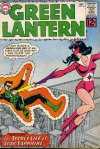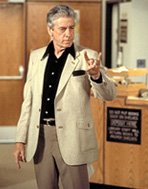
And they're on the shelf. And the floor. In the bathroom. On the desk. In boxes. In bags. Some of them are weathered and worn from multiple readings. Some of them are forgotten and lonely, effusively purchased, then quickly buried under something else deemed more relevant or captivating. Some have multiple, utilitarian uses, like the massive dictionary that also serves alternately as a doorstop and a weapon with which to destroy spiders in an apocalyptic fashion. (Whoever said 'Sticks and stones may break my bones, but words will never hurt me,' has obviously never had a ten-pound dictionary land on their head. The English language can be such a blunt instrument.) Some books that I've had I no longer can find... They've vanished... lent to friends of a different era, no forwarding address or phone numbers to track them down. (What does it say about me that my primary concern is the reunion with a particular book and not a person?) Some have been donated to thrift stores to make way for other books purchased at thrift stores. And some... well, some simply aren't there and I have no explanation for it. Book fairies, no doubt, exercising their right to flitter away with my long-vanished copy of
Invisible Man. (Fairies have a sense of humor, I'm told.) But, in a way, those books are still around, taking up space on the shelf found in the dream corridor of my mind. To wit, I don't own these books... they own me.
These thoughts were going through my head as I was lazily drifting over the somewhat bizzare hodgepodge of titles cramming my book shelf. I wondered what a stranger might think looking over this eclectic assortment. A pristine hard-back edition of
Swann's Way was spooning next to a beat-up, withered, coverless copy of Stephen King's
The Stand. Ascetic tomes relegated to academia, such as Freud's
The Interpretation of Dreams, leaned up against immediate pop art thrills, such as
The Green Lantern Archives. The odd coupling of old TV Guides and Wilkie Collins'
The Woman in White mystifies even me on occasion.
It is with that in mind, that I'd like to do a new feature on the blog, entitled: Dave Looks at His Books. I'm going to pull a few books out at random and write about them. Not in a lit crit kinda way, but just in a weird, first impression kinda way. I fully anticipate this becoming a hot new party game...The next time you're at a party, find out what books the host has and use that to launch conversations. This should be better than charades! (Note: this game requires at least two to three shots of tequila before the "fun" actually begins.)
Okay, tequila ready? Here goes. My first book is
The Green Lantern Archives, in particular, Volume 3. This book collects issues 14-21 of the original silver age Green Lantern series, one of the most fondly remembered silver age comic books. These were originally published in 1962-3. For those of you who have no knowledge of Hal Jordan, Earth's Green Lantern, let me enlighten you. The mysterious Guardians from the planet Oa bestow a green, magic "power ring" upon the bravest individual in a particular sector. Once this individual accepts the mantle of a Green Lantern, they use its power to fight evil, both mundane and cosmic. Our hero, Hal Jordan, is a cocky test pilot who is chosen by the Guardians to be Earth's Green Lantern. The ring's powers seemed to have changed over the years, depending on the author's interpretations. The ring's energy is driven by will power and imagination, making it a vague, ephememral kind of super-power. In one panel Hal might use it to make a green cage to trap his foes. In others, it's simply a blunt energy beam that knocks his evil counterpart, Sinestro, back into space. In one sequence, Hal actually uses it to shrink Sinestro and put him in a minature cube, so he can carry him around in his pocket. Freaky, I know, but back in the 50's and early 60's there seemed to be a lot of stories that involved shrinking.
My favorite issue is #16, "The Secret Life of Star Sapphire." Most DC comics of the time were quite often based on the Superman formula of relationship conflict and nowhere was this more apparent in the idea of a super-hero trying to maintain a double life. Hal Jordan's love interest was Carol Ferris, a Lois Lane type. She's in love with Hal, but also strangely attracted to Green Lantern. As she's engaging in a test flight, she thinks to herself: "It's really too bad I can't make up my mind to marry him! But the trouble is there's somebody else! If I really loved Hal, I wouldn't feel the way I do toward this other person!" Namely, Green Lantern. This sexual confusion would be a long-running motif in the comic.
Her flight is abruptly aborted as she is abducted by a race of otherworldly amazons. Or as they are called in the comic, Zamarons! The Zamarons explain to Carol that they are a race solely of women who have chosen her as their queen. She demures, not wanting to leave Earth because it would mean a life without Hal or Green Lantern. The Zamarons, seemingly a race of pro-active lesbians, are, understandly, put out with Carol's devotion. "Then it is because of a man-creature that you do not wish to come with us?" a Zamaron exclaims, exasperated. Finally, they strike upon what seems like a good resolution. They will give Carol super-powers, like Green Lantern. She'll go back to Earth, defeat and humilate him. Then she'll realize what a waste of time it would be to invest so much loyalty and affection to this impotent and ineffective man-creature. They begin the power-transference ceremony by playing a magical pipe organ. (No, really.) As the power flows to Carol, she murmurs, "Energy from the organ... streaming through my body..." I don't have to channel Freud on the Ouija board to figure out that something else is going on, perhaps unconsciously, but definitely symbolically as the Zamarons manipulate their mystical organ to infuse Carol with their energy. When the process is complete her normal, conservative attire is replaced with a skimpy swimsuit-like sapphire costume, complete with face mask and knee-high boots. She is now called Star Sapphire. (I suppose nicknaming her Sappho would be going to far.) ;) The Zamarons give her a mystical jewel similar to Hal's magic ring. Her energy color is sapphire, opposed to Hal's green. She doesn't want to fight Hal, but because of the Zamaron's magical organ device, she feels strangely compelled to adhere to their wishes.
Newly empowered, she is transported back to Earth to do battle with the Emerald Avenger. She engages him in a series of battles, drawing him out in one instance by robbing an art museuem. All the while, she remains conflicted by her suppressed sexual confusion. Before she met the Zamarons, she was already confused between her longing for Hal and Green Lantern, not realizing that they were one and the same. Now, with the energy of the sapphire coursing through her, she is divided by her devotion to Green Lantern/Hal and the new-found desire to fulfil her destiny as a Zamaron.
When GL inevitably finds a way to defeat her, Carol thinks to herself, "I'm defeated! How terrible... No! How wonderful!" Even in the end, her feelings have shifted. She is left irrevocably altered by her encounter with the Zamarons. Her burgeoning sexuality, left confused by the duality of GL/Hal, is given another outlet, that of Star Sapphire, who, as queen of the Zamarons, could live among them, enjoying the benefits that came with being their supreme ruler. Star Sapphire is inarguably a more sexualized version of Carol, made evident by the skin-tight fantasy costume that she wears. Her power, a sapphire beam, is used in several instances to attack Green Lantern, and, you could argue that this release has, in effect, become a sort of sexual frustration made manifest. She's not only confused, she's pissed at the various barriers between her and her goals.
I love this story because while I sincerely doubt that the ideas of sexual identity were deliberately interwoven in the text, I have no doubt that the comic was tapping into a kind of sexual subconcious that was roiling just underneath the surface of America circa 1962. These adolescents who were reading these comics would, by the late sixties, overtly attempt to answer these questions. From the hippie culture to free love to issues of sexual identity, gay pride, and feminism, these ideas were there as a subtext and, "The Secret Life of Star Sapphire" could possibly hold, within its text, pre-indicators of a changing zeitgeist.
And if you don't agree with me, you obviously haven't had enough tequila.





